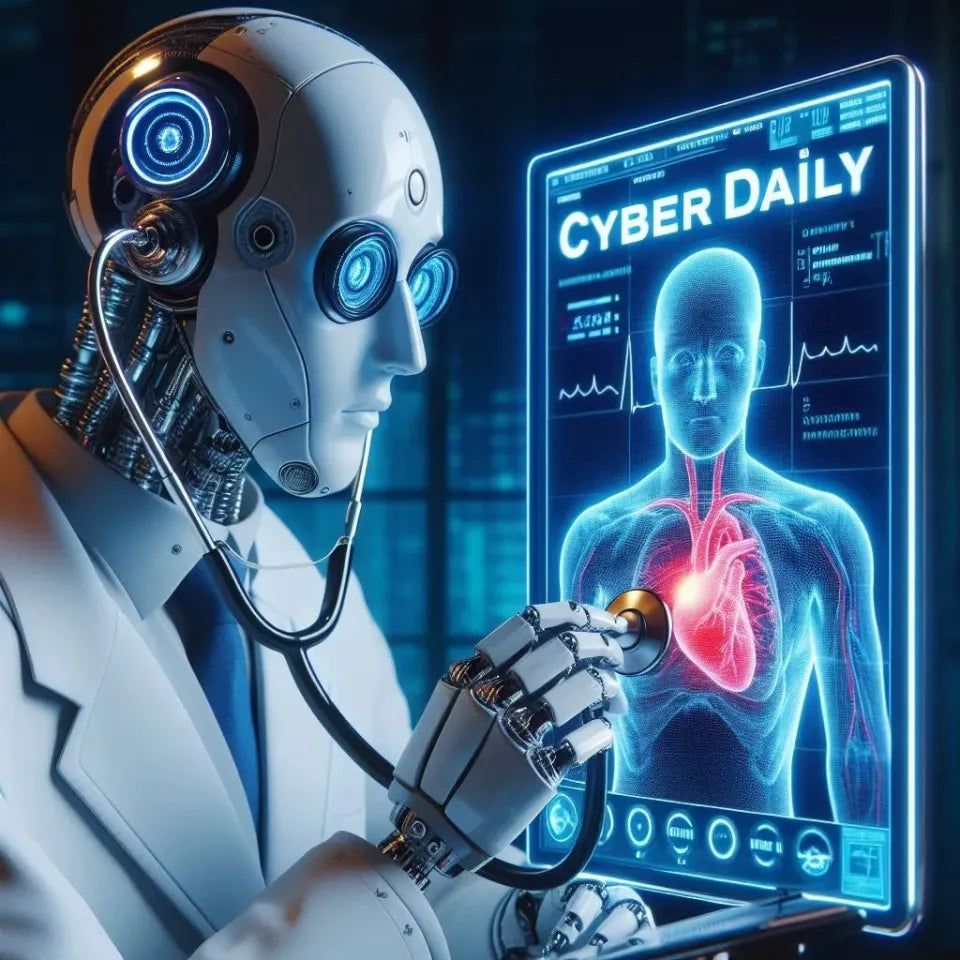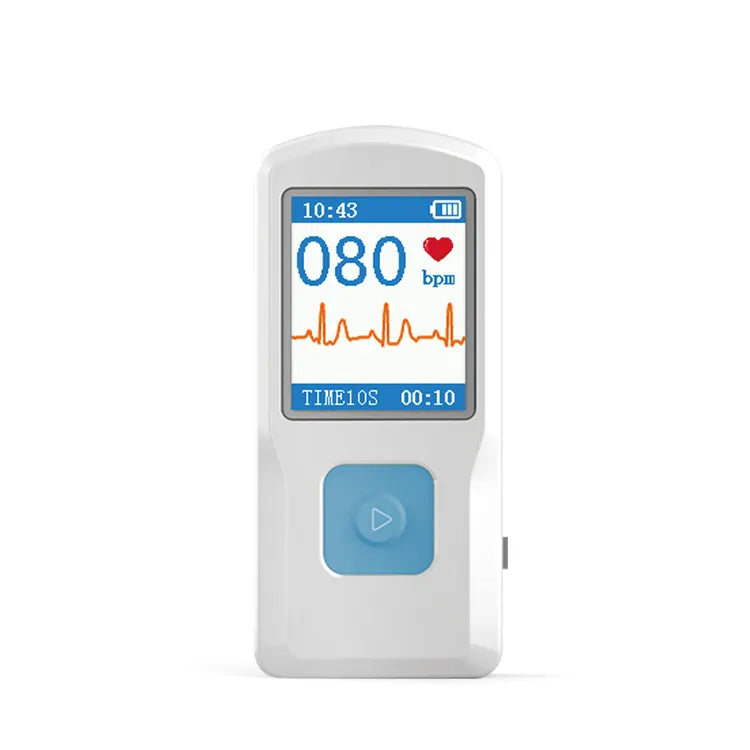El valor de aplicación de la tecnología AI al diagnóstico familiar

Con el rápido avance de la tecnología, la inteligencia artificial (IA) ha penetrado profundamente en nuestra vida cotidiana. La IA ha contribuido innegablemente al progreso de la sociedad humana. Especialmente en la era actual de rápido desarrollo mecánico, la IA se ha convertido incluso en parte de las fuerzas productivas de la sociedad.
La aplicación de la tecnología AI en el campo de la medicina está avanzando rápidamente, conAutodiagnóstico del hogarEmergiendo como una tendencia muy esperada. Las herramientas de autodiagnóstico impulsadas por IA están transformando gradualmente los modelos médicos tradicionales, mejorando la eficiencia del diagnóstico, aliviando la carga de los sistemas de atención médica y brindando a los usuarios soluciones de gestión de la salud más convenientes.

La ayuda de AI para la tecnología médica
Un artículo publicado el 25 de septiembre en The Lancet Digital Health afirma que la IA puede diagnosticar con éxito enfermedades como los médicos profesionales. Investigadores de la Universidad de Birmingham analizaron datos y descubrieron que el aprendizaje profundo de IA puede detectar correctamente enfermedades en el 87% de los casos, en comparación con el 86% de los profesionales médicos. La FDA ya ha aprobado muchas herramientas de IA para el cuidado de la salud, que se espera que ayuden a los médicos a mejorar la eficiencia de su trabajo.
En mayo de este año, un artículo publicado en Nature Medicine detalló una colaboración entre científicos de Google Health, la Facultad de Medicina Feinberg de la Universidad Northwestern y otras instituciones, lo que dio como resultado un sistema de IA capaz de detectar y analizar nódulos pulmonares malignos de las tomografías computarizadas de tórax, lo que permite el diagnóstico precoz del cáncer de pulmón. Los resultados mostraron que en 6.716 casos de prueba, este modelo de aprendizaje profundo podría identificar nódulos pulmonares malignos muy pequeños con un 94% de precisión.
Además, un equipo de investigación surcoreano ha desarrollado un sistema de interpretación de imágenes médicas basado en IA que puede detectar el cáncer de pulmón y otras enfermedades pulmonares a través de radiografías de tórax, con una precisión de diagnóstico casi un 20% más alta que la de los médicos humanos.
Estos datos indican claramente los notables logros de la IA en tecnología médica, con tasas de precisión incluso ligeramente más altas que las de los profesionales médicos.

Aplicaciones de la tecnología de IA en el autodiagnóstico doméstico
Consulta inteligente y análisis de síntomas
Los sistemas de consulta inteligentes utilizan algoritmos de aprendizaje automático para analizar rápidamente los síntomas ingresados por los usuarios y proporcionar diagnósticos potenciales. Aplicaciones como Ada Health y Babylon Health simulan el proceso de consulta del médico al aprender de grandes cantidades de datos médicos, ofreciendo consejos de salud preliminares. Esto no solo ayuda a los usuarios a comprender rápidamente sus condiciones, sino que también proporciona referencias para los médicos, lo que ahorra tiempo de consulta inicial.
Reconocimiento de imagen y diagnóstico dermatológico
Los avances en el reconocimiento de imágenes AI han hecho posible el autodiagnóstico de las afecciones de la piel. Las herramientas de IA de dermatología utilizan tecnología de aprendizaje profundo para analizar imágenes de lesiones cutáneas cargadas por los usuarios y proporcionar diagnósticos potenciales. Los estudios muestran que, en algunos casos, la precisión diagnóstica de estos sistemas de IA puede coincidir con la de los dermatólogos profesionales, mejorando efectivamente la eficiencia del diagnóstico y tratamiento tempranos.
Dispositivos usables y monitoreo de salud
Los dispositivos portátiles modernos, como los relojes inteligentes y los rastreadores de actividad física, vienen equipados con varios algoritmos de inteligencia artificial capaces de monitorear continuamente los datos de salud de los usuarios, incluidos la frecuencia cardíaca, la calidad del sueño y los niveles de actividad. Al analizar estos datos, los sistemas de IA pueden predecir posibles problemas de salud por adelantado, recordar a los usuarios que tomen medidas preventivas e incluso alertar automáticamente a los usuarios en caso de anomalías.

Ventajas de la tecnología AI en la promoción del autodiagnóstico doméstico
Eficiencia diagnóstica mejorada
En los sistemas de salud tradicionales, los médicos enfrentan una tremenda presión por parte de un gran volumen de pacientes, mientras que los sistemas de IA pueden procesar grandes cantidades de información en poco tiempo, proporcionando resultados de diagnóstico rápidos y precisos, aliviendo así la presión sobre los recursos médicos.
Conveniencia para los usuarios
Los usuarios pueden realizar autodiagnósticos en casa a través de aplicaciones móviles o dispositivos inteligentes sin necesidad de visitar un hospital, ahorrando tiempo y esfuerzo. Esto es particularmente importante para aquellos que viven en áreas con escasos recursos médicos o para pacientes con problemas de movilidad.
Gestión de la salud personalizada
Los sistemas de IA pueden ofrecer consejos de salud personalizados y planes de gestión basados en los datos de salud de los usuarios, ayudando a los usuarios a controlar mejor sus condiciones de salud y prevenir enfermedades.

¿Puede la inteligencia artificial ayudar a mejorar la experiencia de atención médica del paciente?
Sí, la inteligencia artificial puede mejorar significativamente la experiencia del paciente. Los chatbots impulsados por IA pueden proporcionar asistencia 24/7, responder consultas y guiar a los pacientes a través de su viaje de atención médica. Los planes de tratamiento personalizados y el monitoreo remoto facilitados por la IA pueden ofrecer una experiencia de atención médica más conveniente y personalizada.
¿Cómo contribuye la inteligencia artificial a la medicina de precisión?
La inteligencia artificial contribuye a la medicina de precisión mediante el análisis de grandes conjuntos de datos, como los datos genómicos, para identificar patrones que influyen en la salud y la enfermedad. Esto ayuda a desarrollar estrategias de tratamiento personalizadas basadas en la composición genética, el estilo de vida y el entorno de un individuo.

Perspectivas y desafíos futuros
A pesar de las perspectivas prometedoras para la tecnología de IA en el autodiagnóstico de los hogares, aún quedan varios desafíos. En primer lugar, deben abordarse los problemas de privacidad y seguridad de los datos, ya que la filtración de datos de salud puede tener graves consecuencias.
En segundo lugar, los diagnósticos del sistema de IA aún requieren la confirmación de los médicos para evitar un diagnóstico erróneo y diagnósticos perdidos. Además, la adopción generalizada de esta tecnología y la educación del usuario son cruciales; solo haciendo que más personas entiendan y confíen en las herramientas de autodiagnóstico de IA se puede realizar su verdadero valor.
En general, la aplicación de la tecnología de IA en el autodiagnóstico doméstico trae nuevas esperanzas y oportunidades a la atención médica moderna. Con los continuos avances y mejoras en la tecnología, se espera que este campo logre mayores avances en los próximos años, salvaguardando la salud y el bienestar de las personas.
RECOMENDAMOS
Artículos relacionados
- Suscríbase a MedInsights
- Suscríbase a MedInsights
- Suscríbase a MedInsights
- Suscríbase a MedInsights
- Suscríbase a MedInsights









